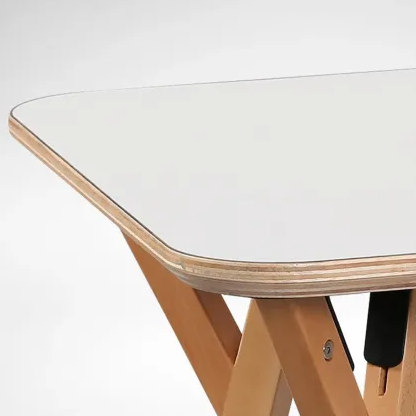What is HPL wood used for?
High-Pressure Laminate (HPL) wood serves a versatile range of applications, making it a popular choice in various industries. Its unique properties and durability contribute to its widespread use in both residential and commercial settings. Exploring the origins, the rationale behind its selection, and the impact on different sectors sheds light on the diverse uses and significance of HPL wood.

HPL wood, at its core, is a composite material crafted by applying high pressure and heat to layers of paper or fabric impregnated with resin. This process results in a robust and resilient material that exhibits excellent strength, resistance to wear, and an attractive aesthetic appeal. The combination of these characteristics makes HPL wood suitable for an array of purposes.
One of the primary applications of HPL wood is in the realm of furniture manufacturing. Its durability and resistance to scratches and abrasions make it an ideal choice for tabletops, cabinets, and other furniture surfaces that endure daily wear and tear. Additionally, the vast array of colors and patterns available in HPL wood allows for creative and customized furniture designs, catering to diverse tastes and preferences.
In the construction industry, HPL wood finds extensive use in wall cladding, flooring, and other interior applications. Its ability to withstand moisture and its resistance to fading make it a reliable material for both residential and commercial spaces. The ease of maintenance further adds to its appeal, offering a practical solution for surfaces that require frequent cleaning or may be exposed to varying environmental conditions.
HPL wood's adaptability extends to the field of interior design, where it is often employed to create decorative elements such as panels, doors, and partitions. Designers appreciate its versatility, as it can mimic the appearance of natural wood while providing enhanced durability and stability. This not only expands the design possibilities but also ensures that the aesthetic vision can be maintained over an extended period.
In the realm of retail and hospitality, HPL wood is a preferred choice for fixtures, countertops, and displays. Its resistance to stains and chemicals makes it suitable for environments with high foot traffic and constant use. The material's longevity and low maintenance requirements contribute to cost-effective solutions for businesses aiming to create attractive and durable interiors.
In conclusion, the multifaceted applications of HPL wood underscore its importance in various industries. From furniture manufacturing to construction and interior design, the unique combination of strength, durability, and aesthetic appeal positions HPL wood as a versatile and reliable material. As industries continue to seek sustainable and resilient solutions, the enduring popularity of HPL wood is a testament to its ability to meet diverse needs and contribute to the creation of functional and visually appealing spaces.

Comments
0